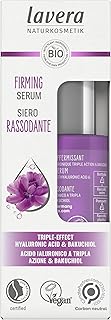Alright, let’s talk about something important but often overlooked in the world of maritime duties—skin care for Coast Guard personnel. You might be thinking, “Skin care? Really? I’m more focused on keeping people safe than keeping my skin clear.” But stick with me here. Whether you’re out there facing the elements or spending hours in an office planning operations, your skin takes a beating. And that, my friend, can lead to problems like work acne.
**Why Skin Care Matters for the Coast Guard**
Think about it. The Coast Guard isn’t just sitting at a desk all day. You’re exposed to sun, wind, saltwater, and sometimes extreme cold or harsh weather—all of which take a toll on your skin. And when you’re focused on intense missions, the last thing you need high-maintenance routines. So, maintaining healthy skin isn’t about looking good (though that can be a bonus); it’s about staying comfortable and fit for duty.
Pinpointing Work Acne: The Unwelcome Guest
Let’s dive into a particular issue called s at ycne. It’s exactly what it sounds like: acne triggered by factors at your job. When you’re in the Coast Guard, there’s a truckload of environmental reasons causing your skin to act up—from constant water exposure to sweat and even stress.
**Why ‘Work Acne’ Happens**
When you’re spending time on the water, your skin is battling high humidity, salt, and often fluctuating temperatures. Combine that with the natural oils your skin produces and, bam—clogged pores everywhere. Plus, when you gear up, your skin is under pressure and friction from uniforms and helmets, creating a breeding ground for breakouts.
**Conversational Tip: A Friend Once Said…**

A fellow Coastie once mentioned how they thought acne was a teenage problem until weeks on the ship had them breaking out like they were in high school again. It’s a rite of passage many face; you’re not alone in this!
Everyday Essentials: Simplifying Skin Care
Alright, let’s break things down. Even if you can’t control the oceans, there’s plenty you can do for your skin. A few thoughtful changes make a world of difference.
Step 1: Hydration is Your Best Friend
First off, drink your water. Yeah, you’ve heard it a million times, but seriously, staying hydrated is a superstar move for clear skin. When you’re hydrated, your skin naturally repairs itself better and looks fresher. So, even amid water exposure, keep drinking your H2O—aim for at least eight glasses a day.
Step 2: Choose the Right Cleanser
Every day, your dynamic environment strips away natural oils from your skin while adding impurities—that’s where your cleanser comes in. For work acne, go for something gentle with salicylic acid. This ingredient is a little powerhouse—it helps clear those pores without stripping your skin dry.
Quick Sidebar: Product Testing, Anyone?
It might take a couple of trials to find your dream cleanser. Start with buying travel sizes, if possible. When on-duty, carry a few cleansing wipes in your pocket as an instant refresh for your face.
Step 3: Armor Up with Moisturizer
Next up, moisturize! Picture it as giving your skin a nice, warm hug before heading out. Choose a lightweight moisturizer, preferably one with SPF 30 or more. Combining moisture with sun protection is a small win that’ll save you so much trouble down the line.

Step 4: Mind the Gear
Your uniform and gear not only protect you, but they might also contribute to acne. Make sure everything that touches your skin is clean. Helmets, straps, and collars—wipe ’em down regularly. Opt for materials that are breathable so you can let your skin have as little friction as possible.
Favorite Go-to’s for Cleaning Gear:
- Baby wipes or wet cloths for quick fixes.
- A clean, soft towel kept handy during shifts.
Balancing Stress and Sleep
In case no one’s told you, your body doesn’t appreciate stress and sleepless nights. Who can totally avoid it that in this line of work, right? But prioritizing downtime is essential for you and your skin. Stress ramps up cortisol levels, aggravating acne.
Relax and Recharge
Try short breathing exercises or a quick power nap during rest breaks. Listen to calming music or hit up a meditation app. Think “brief and consistent” when it comes to stress management on duty.
Skincare Missteps: Common Blunders (and Their Fixes)

Alright, let’s circle back and shine light on a few areas where people tend to slip up. No worries if you’ve been guilty of these—every journey’s got some bumps.
- Neglecting to Adapt: If you’re deploying to different climates or seasons, tweak your skincare accordingly.
- Over-Scrubbing: Harsh exfoliation strips skin—it doesn’t protect or prime it for challenges.
- Skipping After Work Care: Letting salt and grime chill on your skin overnight is no good, so wash up after shifts.
Yet Again: The Magic of Moisturizing
I’ve hammered on about moisturizer already but hey, good reason why. You don’t want hydration just inside but on the skin surface too. See, water’s all around you, but keeping skin optimally hydrated takes more effort. It’s a strategy within a strategy—just trust me on this effort.
In Conclusion: Coast Guard Skin Avenger Mindset
There we have it, folks. An easy-peasy approach to keeping work acne at bay, without adding heaps to your to-do list. Remember, it’s about consistency, a dash of effort, and adapting strategies that align with the commendable duties you already do.
When it comes to work acne, all these small steps combine into something big: happier skin and a more confident you. Keep patrolling those waters, and let your skincare effortless ride the waves too. If acne made its way into your routine, you’re more than ready to handle what comes next. Cheers to smoother sailing—and smoother skin.
So, what’s your first move? Why not start with hydration? Trust me, a lot falls into place with the simplest decision of gulping down a little extra water each day. You’ll notice your skin smiling right back at you, even amidst a complex mission.
Frequently Asked Questions
What causes acne, and how does it relate to hormonal changes?
Acne is caused when hair follicles become clogged with oils, dead skin cells, and bacteria. Hormonal changes, particularly the increase in androgens such as testosterone during puberty, pregnancy, or certain medical disorders, can stimulate the sebaceous glands to produce excess sebum, leading to acne[1][3][5>.
What are the common symptoms of acne?
The symptoms of acne include blackheads, whiteheads, inflamed red bumps (papules), pustules with yellow or white tops filled with pus, painful bumps under the skin (cysts or nodules), and post-inflammatory hyperpigmentation. Affected areas may be tender or painful[1][3][5>.
Can diet and lifestyle factors influence acne?
Yes, diet and lifestyle factors can influence acne. A high glycemic load diet, consumption of cow’s milk, stress, certain medications, and smoking can exacerbate acne. Additionally, using non-comedogenic skin care products and maintaining a healthy diet can help manage acne[1][3][5>.
Is acne hereditary, and can it be passed on to others?
Acne can run in families, suggesting a genetic component. However, acne is not infectious and cannot be passed on to others. If your parents had acne, you are more likely to develop it as well[1][3][5>.
References










